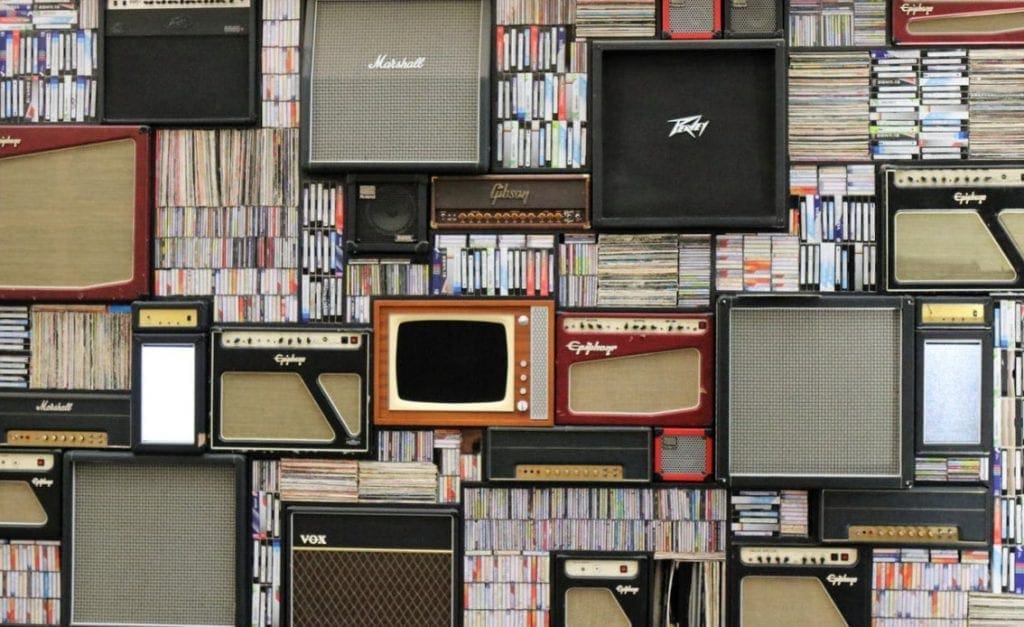3 Things to Look for When Shopping for a New Speaker

If you’re an audio lover, you know that speakers are an exceptional piece of technology that allow us to listen to music or use a radio with heightened volume and the utmost clarity. The form a piece of media takes is important—readers often like a certain kind of book, cinephiles tend to prefer films made in a certain scale, and music enthusiasts want to be able to listen to their favorite album under the perfect conditions.
With that said, speakers are complicated pieces of equipment that are often overlooked which means finding the right one requires a bit of research. We take a look at some of the features your ideal speaker should have before you buy it.
1. Preferred Size and Portability
Choosing the right speaker is contingent on how you plan to use it. Some speakers are designed to be brought with you for traveling or to take up permanent residence in your bedroom. It’s simply a matter of defining what you want to use your speaker for and how often (if ever) it will be moved.
Of course, you must also factor in your available space. Just because you want a big speaker doesn’t mean that it’ll fit in your area of choice, so that’s another factor to keep in mind.
Even though more traditional speakers tend to be larger and more heavy-duty, there are speakers of all kinds of shapes and sizes these days.
2. Amplifier Compatibility
Some speakers, like those offered by Moonraker, have amplifiers built into their design, but the vast majority of speakers still rely on external amplifiers to work. If you already have an amplifier that you’re trying to match to a speaker, be sure to take down its information (such as its model number) before you go shopping.
Otherwise, if you’re looking to buy an amplifier alongside a speaker, it should be smooth sailing, as you can compare the two yourself or ask for a shopkeeper’s assistance while you’re browsing.
Similarly, make sure you know the speaker’s impedance number before you buy it. This informs the level of resistance a speaker exhibits against its own amplifier, and be aware that the less resistance the speaker has, the more the amplifier needs to be able to withstand the amount of power.
3. Speaker Sensitivity (dB)
Your decision will likely come down to how loud the speaker is. Speaker sensitivity is the measurement of volume it’s capable of in decibels, and knowing what sort of power you’re looking for in a speaker will make your search much easier.
Typically, a speaker’s sensitivity level is around 88 dB, but those with 92 dB and higher are most popular. The higher the speaker’s sensitivity, the louder the volume of the speaker with the same amount of wattage. Naturally, speakers with a higher dB sensitivity tend to be more expensive, so ruminate on just how loud you need your new speaker to be.
Sometimes this is confused with speaker efficiency. While the efficiency of power is also an important factor to keep in mind when searching for speakers, it has no direct correlation to the volume output.
Final Thoughts
There’s a perfect speaker out there for everyone—if not multiple! It simply comes down to understanding your needs, identifying what your current amplifier and general set up allow for, and knowing the kind of sound you’re after.
The key points to remember are adapting your new equipment to your existing equipment and making sure you’re not compromising either along the way.
Taking these tips and tricks into consideration will guarantee an optimal speaker purchase!
Since you’re here …
… we have a small favour to ask. More people are reading Side-Line Magazine than ever but advertising revenues across the media are falling fast. Unlike many news organisations, we haven’t put up a paywall – we want to keep our journalism as open as we can - and we refuse to add annoying advertising. So you can see why we need to ask for your help.
Side-Line’s independent journalism takes a lot of time, money and hard work to produce. But we do it because we want to push the artists we like and who are equally fighting to survive.
If everyone who reads our reporting, who likes it, helps fund it, our future would be much more secure. For as little as 5 US$, you can support Side-Line Magazine – and it only takes a minute. Thank you.
The donations are safely powered by Paypal.











